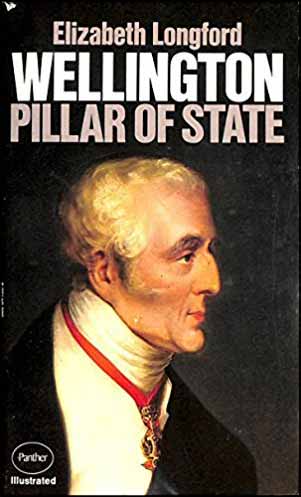This sequel to Longford's well-received Wellington: Years of the Sword (1970) begins right after the Waterloo triumph, when the Duke, for reasons that are never made clear, retired in his prime from fighting and, after negotiations and pacifications in occupied Paris, came home to England to launch a vexed career as the highest of High Tory politicians in a time of great social upheaval, with a Prime Ministership ""killed by the [Reform] Bill."" Wellington's fears of Jacobinism and his opposition to Reform emerge without a sufficient grasp of the general disintegration of the Tory Party; but Longford is emphatic in her sympathies and makes a spirited and detailed defense, for example, of the Duke's role in suppressing the ""Captain Swing"" riots in Hampshire. For politically-minded readers there are theatrical accounts of each parliamentary crisis; for the rest there is a loving reconstruction of the Duke's private life. Longford, a descendant of Wellington's dowdy, neglected, inhospitable but virtuous and devoted wife, has done a great deal of research into the semi-love affairs, estate-building and family strains of this period of ""Arthur's"" life, and makes them alive and moving. For all its fullness, the book falls short as a political biography, and students of personality may protest that the Duke's austere, half-canny character has been over-tempered by granddaughterly reverence; but Longford's enthusiasm is engaging and should win the book its appropriate readership.

